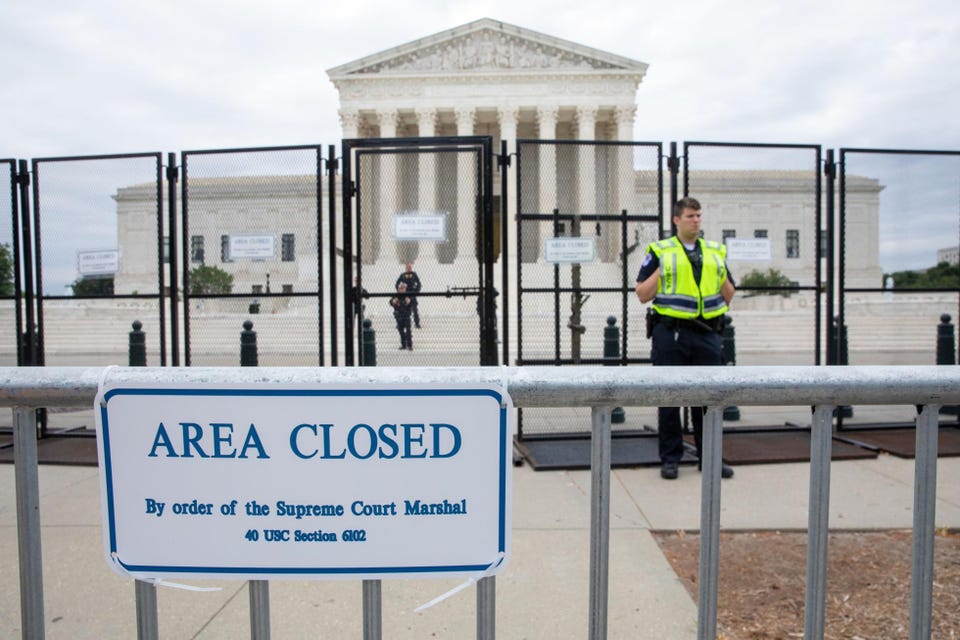
Last Friday, the Supreme Court of the United States upended a half century of federal protections for U.S. women, voting to overturn the landmark 1973 case Roe v. Wade that guaranteed abortion rights. Suddenly, an issue that workplaces have avoided for years—treating it like the third rail of American politics it has long been—is everywhere.
Companies are touting their benefits that reimburse travel expenses for workers who lack access to local reproductive care. Some executives are sharing stories about their own abortions on platforms like LinkedIn, making what has long been personal public. Yet many corporations aren’t saying much beyond describing their benefits, with some, like Facebook and Instagram owner Meta, telling workers not to discuss the decision on certain communication channels, the New York Times reported.
For many workers, the ruling could have a lasting impact on career decisions, from whether they are willing to work in certain states to which employers they choose to work for. According to data released last fall, some two-thirds of college-educated workers have said they would not move to a state with extreme abortion restrictions. Here at Forbes, we updated our tracker of which employers reimburse travel expenses for reproductive care in the days following the decision; a sampling of employers who do so can be found here.
But the monumental ruling could have other impacts on women and on the economy. Some experts project it could potentially impact other employee benefits, such as access to birth control, Forbes’ Alison Durkee reports. The court specified in its ruling that the decision only applied to abortion and not other precedents, but Justice Clarence Thomas argued in his concurrence that he thinks the court “should consider” Griswold—the case which established the right to privacy and legalized birth control (for married couples only at the time)—along with other court rulings on LGBTQ rights, Durkee reported. The president of National Right to Life, meanwhile, told Forbes that anti-abortion advocates would not try and target birth control, calling the suggestion “scaremongering.”https://buy.tinypass.com/checkout/template/cacheableShow?aid=Yj2fRrCPpu&templateId=OTMNB56G6EFU&templateVariantId=OTV23R7HJV5O3&offerId=fakeOfferId&experienceId=EX9KLPB5YG32&iframeId=offer_371575033bfcfd61f1d7-0&displayMode=inline&pianoIdUrl=https%3A%2F%2Fauth.forbes.com%2Fid%2F&widget=template&url=https%3A%2F%2Fwww.forbes.com
A study from the International Women’s Policy Center found abortion restrictions already cost state economies an estimated $105 billion per year; getting rid of all state-level restrictions could increase the national GDP by nearly 0.5%, as fewer women are able to participate in the labor force.
The decision could also have an outsized impact on Black women, who received 38% of reported abortions in 2019, the largest proportion of any racial group, my colleagues Jared Council and Haniyah Philogene report. In an amicus brief filed with the Supreme Court before its Roe decision, 154 economists said “a substantial body of well-developed and credible research” shows that making abortion legal and accessible has had a significant impact on women’s wages and attainment of education, “with impacts most strongly felt by Black women.”
For women making career choices, the wake of last week’s ruling will be felt for years. And for those leading them, the workplace debates, difficult choices and new landscape ahead is only just beginning.